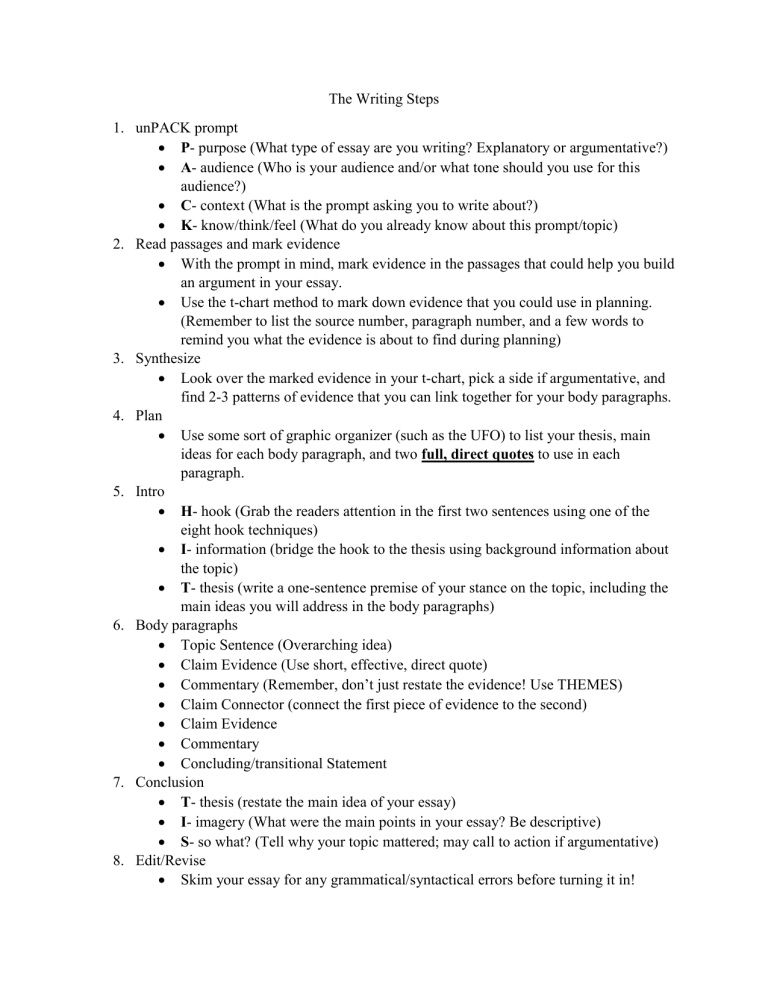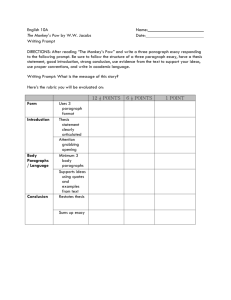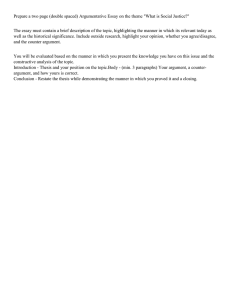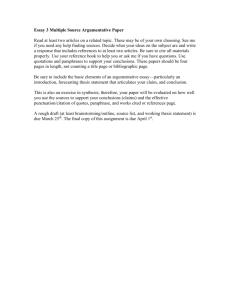
The Writing Steps 1. unPACK prompt P- purpose (What type of essay are you writing? Explanatory or argumentative?) A- audience (Who is your audience and/or what tone should you use for this audience?) C- context (What is the prompt asking you to write about?) K- know/think/feel (What do you already know about this prompt/topic) 2. Read passages and mark evidence With the prompt in mind, mark evidence in the passages that could help you build an argument in your essay. Use the t-chart method to mark down evidence that you could use in planning. (Remember to list the source number, paragraph number, and a few words to remind you what the evidence is about to find during planning) 3. Synthesize Look over the marked evidence in your t-chart, pick a side if argumentative, and find 2-3 patterns of evidence that you can link together for your body paragraphs. 4. Plan Use some sort of graphic organizer (such as the UFO) to list your thesis, main ideas for each body paragraph, and two full, direct quotes to use in each paragraph. 5. Intro H- hook (Grab the readers attention in the first two sentences using one of the eight hook techniques) I- information (bridge the hook to the thesis using background information about the topic) T- thesis (write a one-sentence premise of your stance on the topic, including the main ideas you will address in the body paragraphs) 6. Body paragraphs Topic Sentence (Overarching idea) Claim Evidence (Use short, effective, direct quote) Commentary (Remember, don’t just restate the evidence! Use THEMES) Claim Connector (connect the first piece of evidence to the second) Claim Evidence Commentary Concluding/transitional Statement 7. Conclusion T- thesis (restate the main idea of your essay) I- imagery (What were the main points in your essay? Be descriptive) S- so what? (Tell why your topic mattered; may call to action if argumentative) 8. Edit/Revise Skim your essay for any grammatical/syntactical errors before turning it in!



